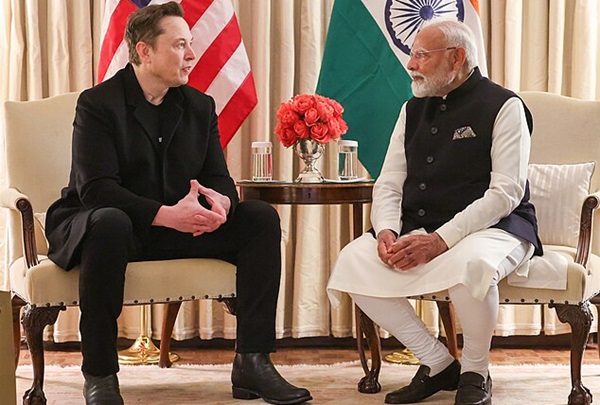.png)

Shruti, a legal journalist, covers business and commercial law. She tracks key legal developments.
March 26, 2025 at 7:24 AM IST
As a carmaker, he secured concessions in one of India’s most protected sectors; as an internet provider, he turned potential competitors—and two of India's richest men—into partners. But Elon Musk’s mettle as India's most influential overseas businessman has been put to another test now.
Musk’s X Corp., previously Twitter Inc., sued the Indian government in the Karnataka High Court this month, alleging that the central government is unlawfully censoring content on the microblogging platform.
More than the outcome of the case, the Centre’s approach in court will be interesting to watch. For one, the strength of its arguments will reveal how far the government is willing to go to pacify concerns about US business interests in India, especially under direct pressure from President Donald Trump regarding anything related to the US or Musk.
Second, clarity is expected on how, or rather to what extent, the government intends to enforce the rule X has challenged—the use of a portal to remove content from social media sites or risk losing safe harbour protections.
Third, the case will reveal whether the rule stands up to judicial scrutiny and, if it does, its impact on India’s relationship with big tech, content censorship, and freedom of expression. It will also offer insights into the government's intended restrictions on the online content Indian users are ultimately allowed to consume.
Returning to the case itself, X, in its petition, has alleged that the Indian government is using a parallel system to issue takedown orders for online content, bypassing the legal procedure established for content regulation under the Information Technology Act.
Under Section 69A of the Act, the government already has the authority to issue directions to remove content it deems harmful to national security or public decorum. This provision also has the backing of the country’s top court, which ruled in a landmark judgment that Section 69A is the lawful means to remove digital content, as it provides certain safeguards and established procedures.
These safeguards under Section 69A are precisely what X is now emphasising. X argues that the government is circumventing these safeguards by invoking Section 79(3)(b) of the Act. Under this section, the government can issue notices to take down content through Sahyog, a government portal, and intermediary platforms like X must comply or risk losing their safe harbour status.
X has termed this an "impermissible parallel mechanism."
Elon Musk has positioned himself as a free speech absolutist, particularly in the case of X, the company, which has had previous run-ins with the Indian government over content, censorship, and safe harbour status.
Laws and rules related to online space regulation have frequently faced challenges in courts, and as a result, the regulatory landscape is still evolving. The government’s IT Rules of 2021 currently face a legal challenge pending in the Supreme Court.
The Indian government’s stance on this specific issue is not yet clear. It remains to be seen if the government will strongly defend its powers to regulate digital content on national security grounds.
If recent incidents are any indication, the government did pull up X over candid responses by its generative artificial intelligence chatbot, Grok—but that's as far as it went.
Recently, the Central government filed an appeal in the Supreme Court, against the Bombay High Court’s September 2024 judgment that struck down the fact check amendment of Information Technology Rules, 2021, as unconstitutional. The Centre has argued that the amendment — which allowed it to notify a fact check unit does not violate Articles 14 and 19 of the Constitution, and applies only to “intentional misinformation”.




